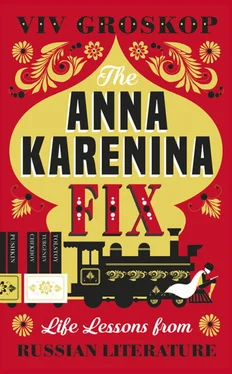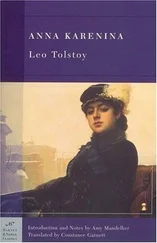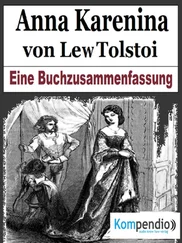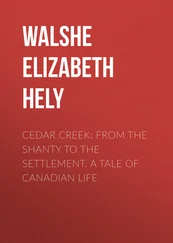As well as shedding some light on some of life’s most difficult moments by using examples from these eleven classic Russian works, I’ll be looking at some examples from the lives of the writers who wrote them, too. Frequently, there’s a mismatch between what the authors seem to advocate in their books and what was going on in their lives. Tolstoy is the classic example. Many of the contradictions, nuances and intricacies of Anna Karenina and War and Peace can be explained by Tolstoy’s later spiritual collapse. When he wrote these books, he empathized hugely with his characters and showed the truth of their lives and feelings. Later on, he felt torn about whether this was a good use of his time and stopped writing those kinds of novels. To know that he was conflicted makes these books even richer with meaning.
The gap between the life of the author, the life of the reader and the text itself has always puzzled me. The thing the reader and the writer have in common is that they’re both real and they’re both living the life of a human being. They know how difficult life can be. And they know it’s almost impossible to express human experience accurately, vividly and believably. However, these two people meet each other on the page, thanks to the story. The story is the stand-in for human experience. It’s pretend, it’s make-believe. The contract between the writer and the reader says that the writer must agree to make the reader believe in this made-up story. And it’s through this agreement that those two people have a meeting of minds and ‘discuss’ human existence. This is an extraordinary contract, and it’s one that is particularly deep in Russian literature.
I’m interested in what these books can teach us about life without us actually having to live through the things described in them. Novels are a way of trying on other people’s lives, judging, forgiving, understanding them. They are as good at showing us how not to live as they are at showing us how to live. In fact, they’re often better at the former. As many critics have noted, the first line of Anna Karenina is intensely memorable and reads beautifully. But the truth of it is not really proved in the novel: ‘All happy families are alike; each unhappy family is unhappy in its own way.’ In the novel itself, there are no happy families. If Tolstoy wanted to show us one, he could have done. But he doesn’t. Instead, he shows us a host of unhappy families, who, ironically enough, do often share things in common: the inability to communicate, the feeling of always thinking that someone else has something better than you, the idea that there must be more to life than this. If anything, Tolstoy’s lesson is this: ‘How Not to Live’. These are sometimes cautionary tales rather than manuals for living. Maybe that’s more real and memorable and therefore more useful than any self-help manual.
Because life is not simple and Russian literature is definitely not simple, there are several outliers in the list of eleven classics featured here. Several don’t count as novels. Pushkin’s Eugene Onegin is a novel in verse form; Akhmatova’s Requiem is a set of ten poems; Chekhov’s Three Sisters is a play, as is Turgenev’s A Month in the Country . Gogol might even argue that Dead Souls is an epic poem. (It isn’t really. It’s clearly a novel.) So, while this is a book mostly about fictional worlds, it’s more precisely about classics of their time and what they have to teach us about life for all time.
There are many books that could have had a place in this list. But I have had to leave out a lot of great works (Dostoevsky’s The Brothers Karamazov , Lermontov’s A Hero of Our Time , Marina Tsvetaeva’s poetry) in order to avoid this book being as long as War and Peace itself. Apologies to Russophiles whose favourites are not present. Of all the books I most wish were here, one is certainly Gogol’s The Overcoat . For me, this is a short story the plot of which sums up Russian literature in a nutshell. It’s about an insignificant copying clerk who saves up for an overcoat. He saves up for a long time. A very long time. On the day the overcoat finally comes into his possession, it is stolen from him. Shortly afterwards, he falls ill and dies. That is Russian literature’s idea of a life lesson. You have been warned.
1. How to Know Who You Really Are: Anna Karenina by Lev Tolstoy
(Or: Don’t throw yourself under a train)
‘All the charm, all the beauty and all the diversity of life are made up of light and shade.’
I came across Anna Karenina when I was in my early teens. It coincided with a time in my life when I was becoming desperate to know more about my origins. As a child, I do not remember a time when I thought that my name was anything other than profoundly weird, unexplained and, ultimately, unexplainable. To come across people with similarly odd names was, to me, deeply comforting. I was never put off by the strangeness of the names in Russian literature. They felt familiar. I felt solidarity with them. I did not mind that I couldn’t say them aloud with any confidence because I had grown up not speaking any language other than English. But I had, however, lived with an unpronounceable name, and I knew it was not that big a deal, even if other people said it was. ‘Viv Groskop. What kind of name is that?’
Growing up in Somerset in the south-west of England, I come from a family that considers itself ordinary, normal and British. Definitely British. I was told this repeatedly as a child. There was nothing in our family history to suggest we were remotely foreign. My grandad was born in Barry, in South Wales. My grandmother was born in Manchester. My dad was from London. My mother and all her family were from Northern Ireland. No one was born abroad. Did I mention there were no foreigners in our family? My great-grandparents on my mother’s side were all from Northern Ireland. On my father’s side, they were born in Wales or the north of England. As a young child, I knew some of my great-grandparents. There were no foreigners. As you can see, I think I have made it clear that there were no foreigners in our family.
Everything we did was British. Or English. Best not to ask the difference between the two. Mostly British, as my grandad liked to emphasize his Welshness on occasion. And no one wanted to make my mum, born in County Antrim, feel left out. I spent a lot of time with my (paternal) grandparents as a child. My grandad, a grocer for thirty years, had a pathological dislike of all things foreign, especially food. Things like lasagne, minestrone and garlic were ‘foreign muck’. Favourite foods in our house were the sorts of foods you would worship if you were the owner of a grocery shop that prided itself on its selection of processed foods: Angel Delight, Bird’s Custard, tinned marrowfat peas. These were much safer than foreign muck.
The only thing to disrupt this picture of canned, processed, unquestionable Britishness was the small matter of our name – to me, quite a puzzle: to be undeniably British and yet be called Groskop. Early on, it struck me that something didn’t quite add up. This was even before I found out that most of my grandfather’s family had changed the spelling of their name from Groskop to ‘Groscop’. Now, we were the only people called Groskop. Another mystery. You are not fooling anyone, Groscops, I would think to myself, careful to change the spelling when I was addressing Christmas cards to elderly relatives, at the same time thinking how odd it was.
The Groscops’ cunning disguise always struck me as rather desperate. They had changed their name from something foreign-sounding but plausible to something foreign-sounding and implausible. Meanwhile, we, the Groskops, bore the title with some quiet measure of pride – we hadn’t sold out and become Groscops! – but, seemingly, zero curiosity.
Читать дальше












